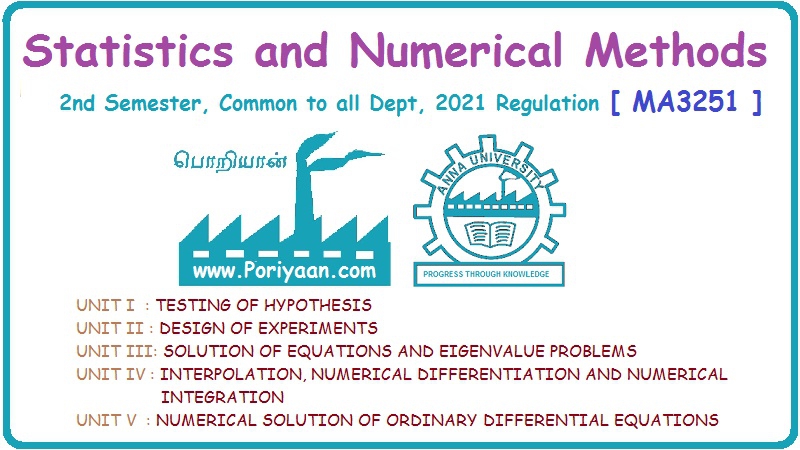Statistics and Numerical Methods: Unit IV: Interpolation, numerical differentiation and numerical integration
Interpolation, numerical differentiation and numerical integration
The estimation of values between well-known discrete points are called interpolation.
UNIT - IV
INTERPOLATION, NUMERICAL DIFFERENTIATION AND NUMERICAL
INTEGRATION
INTRODUCTION
The
estimation of values between well-known discrete points are called
interpolation.
Interpolation
is the process of finding the most appropriate estimate for missing data. For
making the most probable estimate, it requires the following assumptions.
(1)
The frequency distribution is normal and is not marked by sudden ups and downs.
(2)
The changes in the series are uniform within a period.
It
is used to fill in the gaps in the statistical data for the sake of continuity
of information.
Many
famous mathematicians have their names associated with procedures for
interpolation: Gauss, Newton, Bessel, Stirling. The need to interpolate began
with the early studies of astronomy, when the motion of heavenly bodies was to
be determined from periodic observations. Interpolation technique is used in
various disciplines like, business, economics, population studies, price
determination, etc.
Interpolating
function
Let
a set of tabular values of a function y = f (x), where the explicit nature of
the function is not known, then f (x) is replaced by a simpler function ϕ (x),
such that f ϕ (x) and ϕ (x) agree with the set of tabulated points. Any other
value may be calculated from ϕ (x). This function ϕ (x) is known as an
interpolating function.i
Statistics and Numerical Methods: Unit IV: Interpolation, numerical differentiation and numerical integration : Tag: : - Interpolation, numerical differentiation and numerical integration
Related Topics
Related Subjects
Statistics and Numerical Methods
MA3251 2nd Semester 2021 Regulation M2 Engineering Mathematics 2 | 2nd Semester Common to all Dept 2021 Regulation
